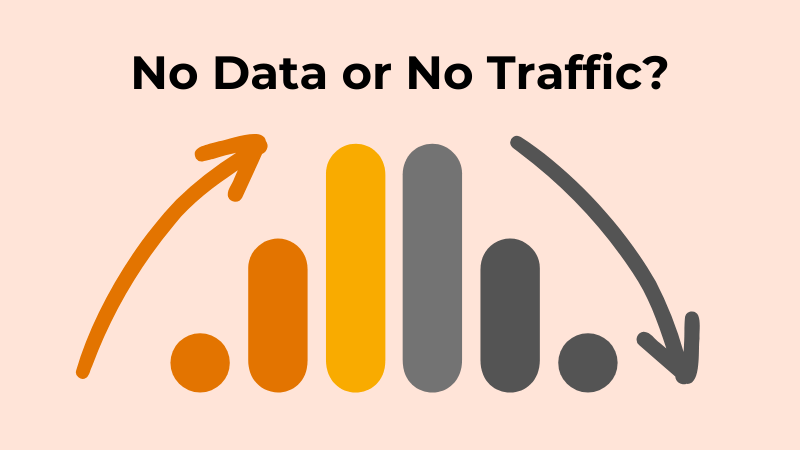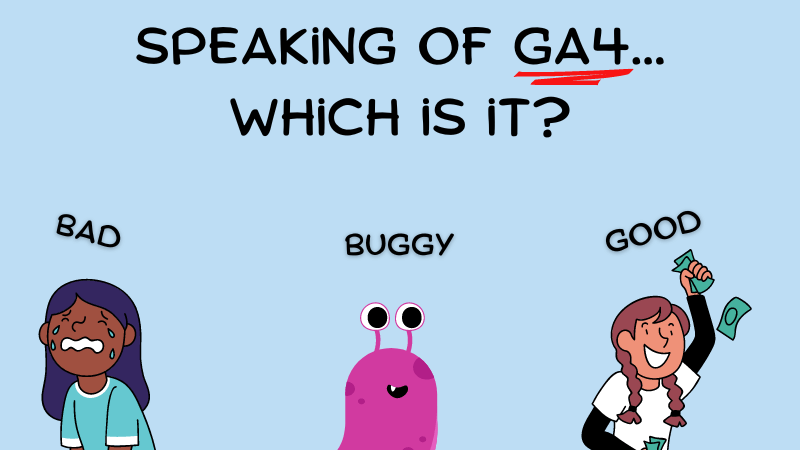What will happen if web page visitor clears the analytics cookie from their browser?
Introduction
I love this question. It can be answered in just two words: It depends.
I know that may not be the answer you were looking for, but the truth is, depending on the trackers, the answer depends. Some analytics and trackers rely heavily on cookies, some less, and others can do without them entirely. So the impact of deleting cookies can range from profound to minimal.
The Cookie King – Google Analytics
Google Analytics, or Universal Analytics, also called GA3, are heavily cookie-based. Deleting cookies affects the state of user sessions and therefore limits your analytics. The cryptic values stored inside GA cookies serve various purposes. They are more or less instrumental in providing You, the website operator, with valuable insight.
Here are some examples: Identification cookies NID, ENID, ADID, IDE, and AIDE are used to identify the user signed out from Google services on or outside. Consent cookies CONSENT and SOCS store user choice regarding tracking.
One of the interesting aspects of cookies is their lifetime. And this is where Google leverages cookies to their fullest potential.
For example, cookie NID expires after six months, while ENID expires after 13 months. This means you can effectively identify returning visitors for a relatively long period.
Suppose a user deletes their cookies. In that case, that information is lost, and for you, this will appear as if a new user visited your web property.
Wait, aren’t Google Analytics cookies starting with the _ga prefix? Yes! You are right. But here is where Google sneaks up on you and your users. Users’ cookies from other Google Services are sent with your tracking data. These cookies are not confined to your site and are accessible by JavaScript running on your website.
This technical choice made by Google enables third-party cookies to be so effective. So the privacy of Gmail or Google Search (while logged in) users is really short-lived.
Another example is the CGIC cookie, set by Google Search, which will share with Google what search term was used to reach your website.
Let’s summarise. Deleting cookies will impact your web analytics reports in the following way:
- Loss of data depth due to observing new rather than returning users
- Loss of reliability in search term attribution
- Loss of information about referring traffic if particular strict links rules are not maintained
- Limited attribution to marketing campaigns
And that is even before we start looking into AdSense, ad personalization and syndication, and the infamous ADID cookie.
The AdSense cookie is used for ad personalization. This personalization considers the trove of data that Google holds on users, either collected on different web properties or submitted as part of a Google profile. With this information, Google can serve ads and provide web analytics insight using information such as age, gender, etc. The ADID is next generation anonymous identifier 🙄 which claims to shield users’ personal data from advertisers.
With Cookies cleared, assuming these are not regenerated by visiting Google Search, the advertising targeting the visitor will be more generic.
The future – GA4
With so much regulatory pressure and users frequently clearing their cookies, no wonder Google is moving away from cookie-based tracking.
Well, sort of. GA4 will still use first-party cookies. These first-party cookies will then be used by tracker code from Google via JavaScript to be sent to Google Analytics.
The _ga cookie will identify the user and connect its identity with the AdSense profile and other Google Services. This cookie has a lifetime of up to 2 years. Deleting this cookie and other cookies will also impact your web analytics.
Google Analytics 4 provides you with many more opportunities to extract user IDs and other tracking data based on your own information. You can instrument the GA tracker code with identification details or let it fetch this data from the website (DOM inspection).
When cookies are unavailable, GA4 promises to employ “Machine Learning and AI” to compensate for any gaps. The details of the algorithm doing the tracking mentioned above are not transparent, so assessing the full breadth of impact might be difficult.
Persistence of Google’s Cookies
Let’s clarify one thing. Google and its services are omnipresent. It is hard to imagine a search without Google. And so is Gmail, probably the most popular email platform to date.
Why does this matter? Because the moment a user visits these services, the fact that they cleared local cookies will mean little. Google will quickly repopulate user and advertising IDs.
Is Delete Cookies Even a Thing?
According to Statista, only a quarter of privacy-conscious Internet users block 3rd party cookies. At the same time, nearly 73% of users know about online privacy rights and issues.
But an interesting takeaway can actually be found in the ClickZ study:
Based on a survey of 2,337 U.S. respondents, the study finds that 17 percent of Internet users delete cookies on a weekly basis. Approximately 12 percent do so on a monthly basis, and 10 percent make it a daily habit.
Combined with quick re-identification and a relatively low percentage of users clearing cookies regularly, one could wonder if this creates changes of statistical significance.
TL;DR
You will lose some insight when a user deletes cookies from their browser. To regain the same quality of long-term tracking and user interaction analytics, you will have to make an extra effort to help Google re-identify users.
Based on statistical data and information collected thus far, users deleting cookies are unlikely to impact the overall statistics of the website with significant traffic.
Cookieless future with Wide Angle Analytics
So, if the impact is not severe, should you worry? The whole premise of user tracking by Google and its properties is under a microscope by regulators these days. These cookies can be contracted by casual browsing, and keep following us around should cause at least an eery feeling.
There are better alternatives. There is a whole genre of tools, like Wide Angle Analytics, that enables cookie-based and cookieless analytics.
Wide Angle Analytics enables you to investigate your website tracking and track marketing attribution irrespective of end-user browser sanitary practices. Start Your Cookieless Web Analytics Adventure.
No Cookie Banners. Resilient against AdBlockers.
Try Wide Angle Analytics!



